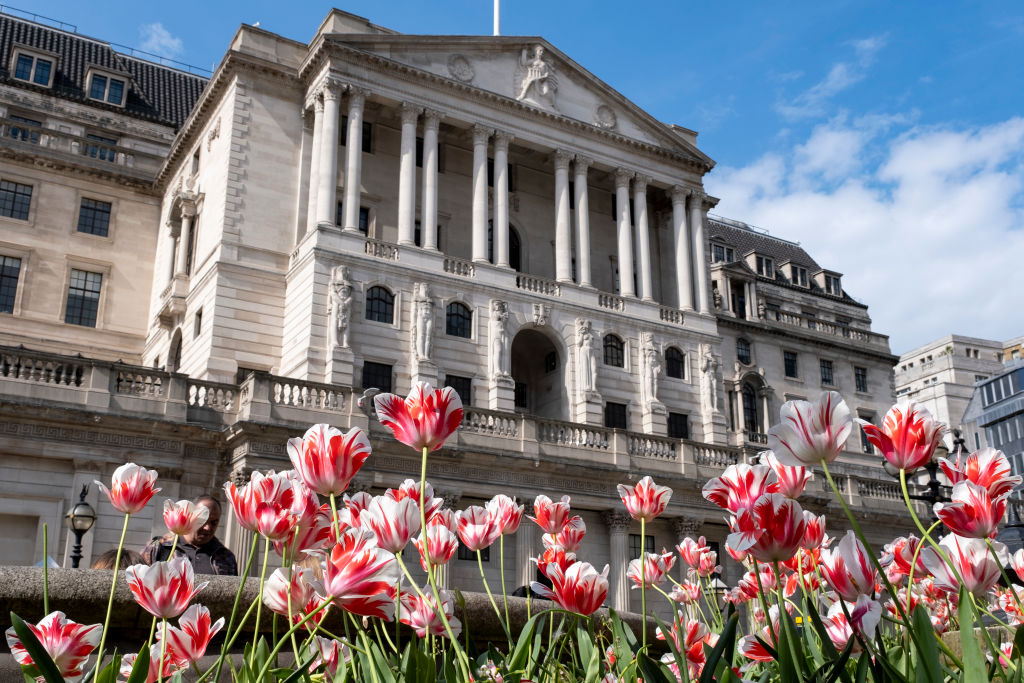Why a recession will do us good
A period of slimming down is always painful, but it leaves us healthier for the long run, says Matthew Lynn.


Get the latest financial news, insights and expert analysis from our award-winning MoneyWeek team, to help you understand what really matters when it comes to your finances.
You are now subscribed
Your newsletter sign-up was successful
Want to add more newsletters?

Twice daily
MoneyWeek
Get the latest financial news, insights and expert analysis from our award-winning MoneyWeek team, to help you understand what really matters when it comes to your finances.

Four times a week
Look After My Bills
Sign up to our free money-saving newsletter, filled with the latest news and expert advice to help you find the best tips and deals for managing your bills. Start saving today!
The British economy looks in dire trouble right now. We have already seen two consecutive months of falling output, and there is no reason to expect that trend to be reversed any time soon. Inflation is running at 9%, pushing down real wages at the fastest rate in living memory. The Bank of England has already started raising interest rates, and will no doubt push them higher before the cycle is finished. The government is raising taxes, both on individuals and on companies, which will depress demand and investment.
Meanwhile the war in Ukraine is sending Europe into a downturn, hitting trade with what remains our most important market. Combine that with our economic woes and the UK looks certain to face a recession this year; the only real question is how deep and bad it will turn out to be.
In normal times, the chancellor and Bank of England would be doing all they could to avoid one. Recessions hurt; the country gets poorer, output falls, skills are lost, and otherwise viable businesses go to the wall. It’s all bad. That is why we usually do everything we can to avoid one, and, if it can’t be avoided, to make sure it is as short and painless as possible. And yet, just possibly, this year might be the exception to that rule. A recession might even do some good. Here’s why.
MoneyWeek
Subscribe to MoneyWeek today and get your first six magazine issues absolutely FREE

Sign up to Money Morning
Don't miss the latest investment and personal finances news, market analysis, plus money-saving tips with our free twice-daily newsletter
Don't miss the latest investment and personal finances news, market analysis, plus money-saving tips with our free twice-daily newsletter
Clear out the zombies
First, it is the only real way to bring inflation under control. Double-digit price rises have never been curbed without a recession. Prices rise when too much money is chasing too few goods, and that can only be bought back into balance if you have more goods or less money. It is difficult to magic more goods out of nowhere, so the only real fix is for everyone to have less money. That only happens with a recession, usually sparked when the central bank starts to put up interest rates aggressively. Without one, prices will carry on rocketing upwards forever.
Next, a recession will clear out all the zombie companies – the high street is still full of them and so are many other sectors. It may sound harsh, but the economy would be better off without them. They use up land, keep workers in dead-end jobs and tie up capital that would be better deployed elsewhere. None of them are capable of any real growth. With a round of bankruptcies the economy would be in better shape.
Third, a period of retrenchment might get people working properly again. A year of lockdown seems to have convinced people that just about any job can be done from home, or even from a beach on the Mediterranean. It simply isn’t true – the country is already grinding to a halt; the airports are chaotic, transport systems are snarled up, and the machinery of government hardly functions any more. If jobs are scarce for a year or two that will start to change. We will hear a lot less about home working, work-life balance and four-day weeks. It might be tough, but it would remind us all that work might be difficult and demanding, but it needs to get done.
Make the most of Brexit
Finally, it will force the government to finally take advantage of Brexit. Since leaving the European Union, the UK has done virtually nothing to deregulate, or to make businesses more competitive, even though we need to find some way to make up for losing easy access to our most important trading partner. With a recession, the government will have to think about how we can grow again. And it will have to start using the powers we have taken back in a positive way.
No one ever wants a recession but the truth is that they are a normal part of the business cycle. They used to come around at least once a decade, and although there was some pain, they cleared a lot of the dead wood and left the economy a little slimmer, but also a lot healthier. For decades governments and central banks have done everything possible to avoid any form of a downturn. Instead of fighting it, this time we should just let it happen – it might just do some good.
Get the latest financial news, insights and expert analysis from our award-winning MoneyWeek team, to help you understand what really matters when it comes to your finances.

Matthew Lynn is a columnist for Bloomberg and writes weekly commentary syndicated in papers such as the Daily Telegraph, Die Welt, the Sydney Morning Herald, the South China Morning Post and the Miami Herald. He is also an associate editor of Spectator Business, and a regular contributor to The Spectator. Before that, he worked for the business section of the Sunday Times for ten years.
-
 Average UK house price reaches £300,000 for first time, Halifax says
Average UK house price reaches £300,000 for first time, Halifax saysWhile the average house price has topped £300k, regional disparities still remain, Halifax finds.
-
 Barings Emerging Europe trust bounces back from Russia woes
Barings Emerging Europe trust bounces back from Russia woesBarings Emerging Europe trust has added the Middle East and Africa to its mandate, delivering a strong recovery, says Max King
-
 Why Scotland's proposed government bonds are a terrible investment
Why Scotland's proposed government bonds are a terrible investmentOpinion Politicians in Scotland pushing for “kilts” think it will strengthen the case for independence and boost financial credibility. It's more likely to backfire
-
 How have central banks evolved in the last century – and are they still fit for purpose?
How have central banks evolved in the last century – and are they still fit for purpose?The rise to power and dominance of the central banks has been a key theme in MoneyWeek in its 25 years. Has their rule been benign?
-
 UK to have highest inflation among advanced economies this year and next, says IMF
UK to have highest inflation among advanced economies this year and next, says IMFThe International Monetary Fund (IMF) says it expects inflation to remain high in the UK, while lowering economic growth forecasts for 2026.
-
 Is Britain heading for a big debt crisis?
Is Britain heading for a big debt crisis?Opinion Things are not yet as bad as some reports have claimed. But they sure aren’t rosy either, says Julian Jessop
-
 'Britain is on the road to nowhere under Labour'
'Britain is on the road to nowhere under Labour'Opinion Britain's economy will shake off its torpor and grow robustly, but not under Keir Starmer's leadership, says Max King
-
 'Governments are launching an assault on the independence of central banks'
'Governments are launching an assault on the independence of central banks'Opinion Say goodbye to the era of central bank orthodoxy and hello to the new era of central bank dependency, says Jeremy McKeown
-
 Why investors can no longer trust traditional statistical indicators
Why investors can no longer trust traditional statistical indicatorsOpinion The statistical indicators and data investors have relied on for decades are no longer fit for purpose. It's time to move on, says Helen Thomas
-
 Live: Bank of England holds UK interest rates at 4.5%
Live: Bank of England holds UK interest rates at 4.5%The Bank of England voted to hold UK interest rates at their current level of 4.5% in March, as widely anticipated, after inflation rose to 3% in January